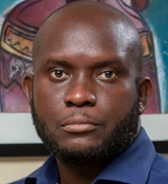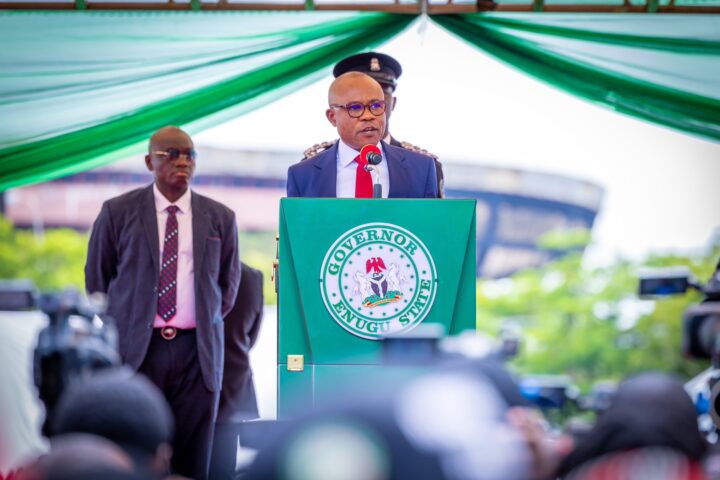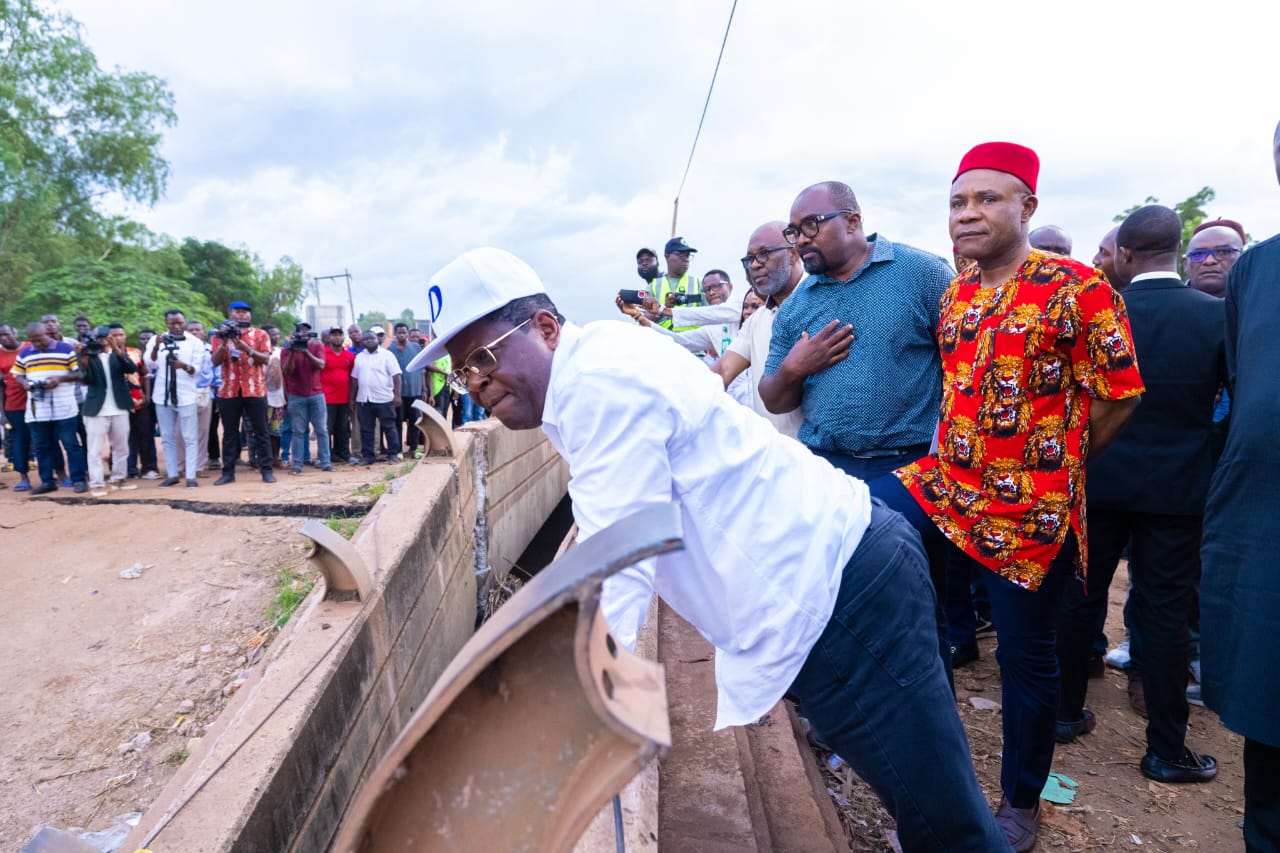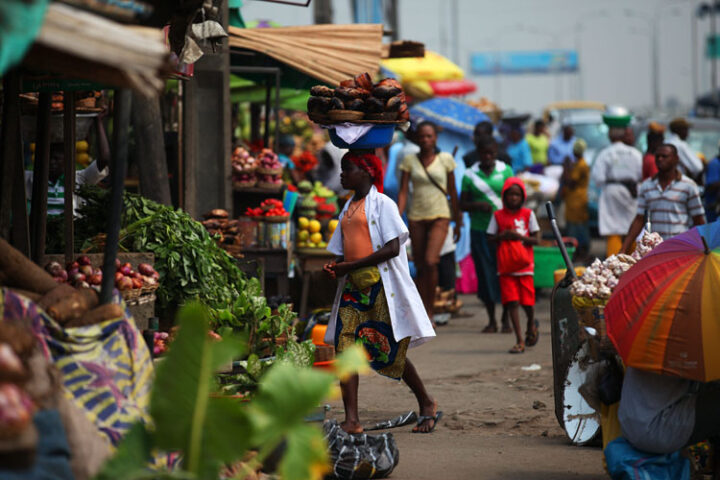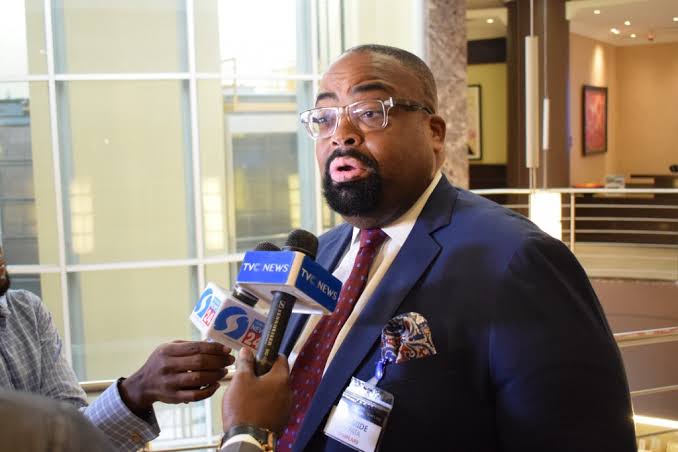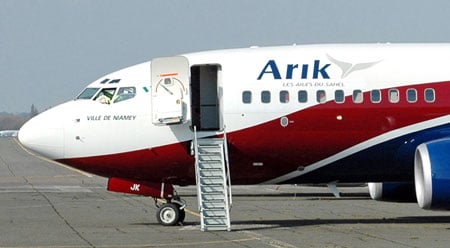“Good intentions are simply not enough”. This quote by Law Professor Michael Josephson, which highlights the need for desires to be backed by feasible platforms and actions, helps situate the desire of Peter Mbah to grow the economy of Enugu state by 682% in eight years, and how this desire will require structural and economic platforms for such desire to be achieved. It also helps to situate the role that the Lion Business Park can play in feasibly facilitating the plan and desire by Governor Mbah to grow the sub-national’s economy from the current $4.4 billion to $30 billion by 2031, as contained in his ‘Tomorrow is Here’ policy document.
At face value, the prospects for such a quantum leap in economic development look daunting, but feasible, with a governor that has the passion, skill set and capacity to pull off such good intention. Enugu state sits on a land area of 7,161km2, with a population of 8.3 million. The capital city of Enugu, sitting on a land area of 556km2, bears a population of 820,000 people, constituting just about 10% of the overall population. Enugu state sits on deep natural gas wells, and large deposits of glass sands, iron stones, gypsum, clay minerals, limestone, alum and of course coal, for which colonial explorers founded and built Enugu, the state capital. The state’s gas and petroleum deposits are mapped as the oil wells OPL914, OPL905 and OPL907.
Prior to his assumption of office as the 10th governor of Enugu state in Eastern Nigeria on May 29, 2023, Peter Ndubuisi Mbah, a lawyer with postgraduate degrees in business, strategy and innovation, had some extensive experience in politics and business. He was the chief of staff to the Enugu state governor in 2003, and subsequently the commissioner for finance and economic development. He was a member of the federal accounts allocation committee (FAAC), chairman of the FAAC sub-committee on legal matters, chairman of the board of directors for the Enugu State Insurance Company, chairman of the board of directors for the Enugu State Finance and Investment Company and chairman of the Enugu State Tenders’ Board.
His business career, which began in 1992, has seen Mbah engage in domestic and international commercial activities. The one that stands out is Pinnacle Oil and Gas Ltd, Nigeria’s leading company in the petroleum downstream sector by market share, in which Mbah is founder and former CEO. With extensive commercial presence across the country, the company, which owns a $1 billion petroleum terminal, completed the development of Single Point Monitoring (SPM), Conventional Buoy Mooring (CBM) and storage facilities at Lekki Free Trade Zone in 2021. Mbah therefore knows the importance of Free Trade Zones (FTZ) for significant business and economic expansion, as a FTZ helped to make his company the largest in Nigeria’s petroleum downstream subsector by trade volume. He therefore has the proven strategic and practical business cum political experience, for the job of harnessing FTZs and other economic assets and prospects, to actualise his goal of raising the gross domestic product (GDP) of Enugu state to $30 billion, within his time as governor.
Advertisement
It is within Mbah’s experience in business and politics at Lekki FTZ that the prospects of Lion Business Park FTZ Enugu can be strategically assessed.
Lion Business Park (LBP) is a licensed FTZ planned as a smart industrial city, and located on 2,000 hectares of industrial, commercial and residential development within the 9th Mile area of Enugu state, which is almost at the transport confluence between the South-East, South-South, North-Central and South-West of Nigeria. A 20-minute drive to the Akanu Ibiam International Airport and a couple of hours’ drive to the Port Harcourt and Calabar seaports, it is near the rail link from Enugu to Port-Harcourt, and located on the Trans-African Highway that provides access to the rest of the African market.
As a private sector-driven facility that supports sustainability, the LBP has a container terminal that enhances the ease of shipping, transport and logistics. The park is designed to co-locate manufacturers with wholesalers, for enhanced market interactions between manufacturers and traders, as well as for distribution efficiency. With its industrialisation knack for the desired level of economic development, LBP is designed to transform traders into manufacturers, importers into exporters, craftsmen into innovators and the unemployed into business owners.
Advertisement
With its FTZ status, LBP investors are entitled to tax reliefs and exemption from all federal, state and local government taxes, levies and rates. There is duty-free import of capital equipment, machinery, raw materials components and spare parts, as well as 100% foreign ownership of businesses — if so desired. Investors are able to repatriate foreign capital investment without restriction, alongside capital appreciation of the investment. Operators and investors in the zone do not require import or export licenses.
As good intentions are simply not enough, it is essential to assess some other locations where FTZs have enabled and facilitated quantum economic leaps, such as that desired in Enugu, to validate the prospects of LBP FTZ. And which better location to assess economic validation, than the Peoples Republic of China, the world’s second-largest economy?
When Deng Xiaoping became the leader of China in 1978, he decided to pursue practical economic reforms that would feasibly actualise the aspirations of the Chinese people, beyond the more ideological expressions of the ‘Cultural Revolution’ and ‘Great Leap Forward’ of Chairman Mao Zedong. Deng launched his ‘Open Door’ economic reform policy, which included the establishment of special economic zones (SEZ) and FTZs. Shenzhen is one of the SEZs established as part of the ‘Open Door’ policy in 1980. With its affordable labour, infrastructure, location proximity to Hong Kong, liberal economic practices, and tax incentives, Shenzhen SEZ was designed to attract certain forms of investment, including modern technology, that facilitated the economic aspirations of Deng and China. Shenzhen has lived up to its economic objective, and once accounted for 50% of foreign direct investment (FDI) in China. Together with other SEZs and FTZs, Shenzhen has significantly contributed to making China the world’s second-largest economy. Shenzhen facilitated and is home to Huawei, the global 5G leader and electronic hardware company. The city, with a current GDP of $475 billion, is also home to telecommunications giant Tencent, and sub-headquarters to Bytedance, the parent company of Tiktok.
Lion Business Park has similar human and economic features to Shenzhen SEZ, and can therefore provide feasible support to the $30 billion economic goal that Governor Mbah has for Enugu. It however requires that he provides continuous strategic support and direction to LBP, similar to how Deng Xiaoping and his governing officials managed SEZs in China. Mbah can give LBP some character, by promoting certain types of manufacturing and sales activities that strategically align with his $30 billion GDP goal for Enugu. The manufacturing types could be high or medium technology manufacturing, or manufacturing and sale of certain types of consumer electronics and devices, with opportunity for scaling, as Huawei did at Shenzhen. His marketing and promotion support will include providing a conducive business environment across the state, alongside security and infrastructure. His strategic support and direction should however not be obstructive or partisan so that enterprise and innovation can thrive. Technology products can form a substantial part of activities at LBP, especially with the geopolitical opportunities in contemporary times, where the United States (U.S.) is considering other advanced semiconductor and high technology manufacturing locations away from Taiwan and parts of Asia, due to its dispute and concerns over China’s influence in Taiwan, South Korea and Japan.
Advertisement
The U.S. ‘CHIPS and Science Act’ of 2022, U.S. sponsored ‘Chip 4 Alliance’ of 2022, ‘U.S. Strategy Towards Sub-Saharan Africa’ of August 2022, the second ‘U.S.-Africa Leaders Summit’ of 2022 and the first-of-its-kind trilateral summit of US, Japan & South Korea in 2023, provide pointers to the geopolitical opportunities for safe zones such as Nigeria, in the location of advanced technology manufacturing. That Nigeria is not a BRICS member country is further non-aligned geopolitical posturing that can be leveraged by Mbah, to attract technology manufacturing to LBP and Enugu, as affordable alternatives become viable options.
Mbah has shown good signs in attracting domestic and foreign investment, going by the success of the inaugural Enugu State Investment and Economic Growth Stakeholders Roundtable in September 2023. At the event, he unveiled a $2.1 billion (N1.6 trillion Naira) project pipeline that spans several industries such as transportation and healthcare infrastructure, energy, power, and agro-industrialisation. The roundtable had senior executives of the World Bank Group, the African Development Bank Group, the International Finance Corporation, the African Export-Import Bank, the United Kingdom Department for Trade and Business, the Africa Finance Corporation (AFC), the British High Commission, the Nigerian Sovereign Wealth Fund, commercial banks and other stakeholders in attendance. The event supported the provision of strategic direction for effective private capital mobilisation for large-scale infrastructure projects, including climate-resilient and sustainable infrastructure projects that can unleash the additional economic potentials of Enugu and the South-East of Nigeria. The roundtable will be succeeded by a multi-stakeholder, fully transactional Diaspora and Investment Forum with the theme ‘Leveraging Public Private Partnerships’, scheduled for Q2 2024.
Also, the commencement of the United Kingdom (UK) visa office in Enugu in September 2023, following a request made by Governor Mbah to the UK high commissioner to Nigeria during his visit to Enugu in June 2023, is tangible evidence of Mbah’s drive and capacity to attract more foreign investment to the state. Hopefully, he should be pushing for US, European Union and Chinese diplomatic presence in the state, which can also serve the geopolitical zone, as a means of attaining the economic goals he has set for Enugu.
That manufacturing in Nigeria constitutes just 10% of GDP and 12% of jobs in the formal economy, further underscores the need for Mbah to provide economic, human and geopolitical leadership, for the desired socioeconomic success of initiatives such as LBP. And this will help in addressing youth unemployment and other socioeconomic challenges, by properly channelling the energies, dedication and passion for technology in southeastern Nigeria into high technology research and development such as 5G technology, semiconductors and other forms of tech manufacturing. Mbah can also support planned linkages between LBP and the Innoson Kiara Academy of the indigenous car maker at Emene, alongside other industrial concerns at the Emene industrial area. The nearby University of Nigeria, Enugu State University of Science and Technology, and other academic and training organisations can provide relevant skills and training on a sustainable basis.
Advertisement
The initial security challenges that took Mbah some weeks to resolve upon assumption of office, alongside neighbouring Governors Soludo of Anambra state and Alex Otti of Abia state, should have cleared any doubts about good intentions simply not being enough. And it is a good thing that the governors of Anambra and Abia are clearly implementing plans for quantum economic growth, by also deploying their extensive domestic and external personal networks for the task of development in their states. This provides healthy competition for Mbah to deploy similar extensive personal networks, in meeting the stated goals by which his governance performance will be measured.
Peter Ndubisi Mbah’s plan to grow the economy of Enugu state from $4.4 billion economy to $30 billion in eight years is the stuff of the ‘Asian Tiger’ economies. The lion in the Lion Business Park is by chance, from the same larger cat family, as the tiger. As good intentions are simply not enough, Mbah’s business experience as founder of Pinnacle Oil and Gas, plus his previous stint in politics, position him as a leader who should be able to attain the desired 682% economic growth for Enugu state, and probably more, with supporting platforms such as Lion Business Park. We await the next sub-national Asian tiger miracle.
Advertisement
Uwanaka writes from the African University of Science and Technology, Abuja. He can be reached via [email protected]
Advertisement
Views expressed by contributors are strictly personal and not of TheCable.
Add a comment
